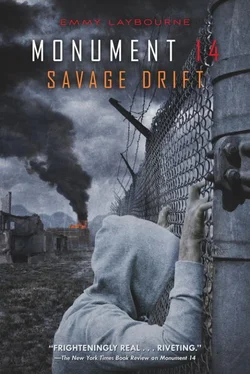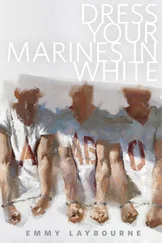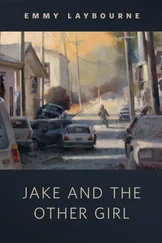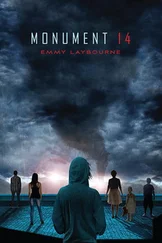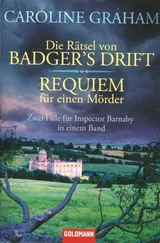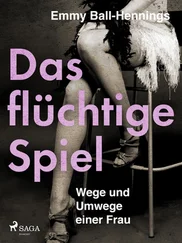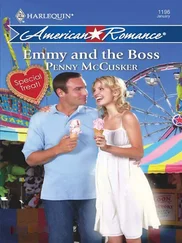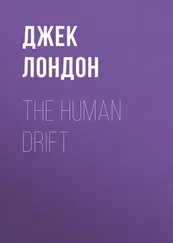We said we’d think about it.
* * *
Finally we pulled up at the farmhouse. Niko’s uncle came striding out on his long legs, arms open wide. Niko and Josie were right behind him, Josie so excited to see us she was nearly jumping for joy.
Maybe it was because of the backdrop—the weather-beaten clapboard farmhouse, an oak tree complete with tire swing, and the flock of chickens darting underfoot—but Niko and Josie already looked like farmers. Niko in a plaid shirt and jeans. Josie wearing a skirt and a sweater and a pair of Keds.
“I’m Tim,” Niko’s uncle said, opening Sandy’s door. “Welcome to the Pfeiffer Family Farm! No trouble finding the place?”
“Followed the directions just like you said. Easy as pie,” Sandy replied. Tim gave her a hand out of the car.
“Well,” he said to me. “You must be Dean. I’ve heard so much about you.”
He crossed to me, took my hand in his broad grip and shook it firmly.
“Thank you so much for letting us come here,” I said.
He waved it off. “Thrilled to have you. Truly. Wouldn’t have it any other way. You’re family now! I mean it.”
I opened the door for Astrid and helped her out.
“I’m Astrid,” she said. The uncle swept her into a hug.
“Easy, Uncle Tim!” Niko said. “She had surgery.”
Astrid was fine, though, grinning. She gave Niko and Josie an even bigger hug.
I reached in and unlatched the car seat from the base.
Our son was swaddled tightly, the way only a nurse can do, and was asleep.
“This is Charlie,” I said.
“Lookit that,” Tim said. “A real baby.”
“Charlie’s a sweetie, there’s no doubt about it,” said Sandy. She was arm in arm with Josie by now. “All the nurses at USAMRIID—can you imagine how happy we’ve been?—usually we just get sick people but there’ve been babies this year! SO many wonderful babies!”
Then a man came out of the house and walked over to us. He was short and chubby, and grinning ear to ear.
“Who’s that?” I asked Niko.
“You’re never going to believe it!” Niko said.
The man crossed down to us, extending his hand. “I’m Patrick Wenner. So pleased to meet you! Really, a pleasure. Can’t tell you how much.”
It was Sahalia’s dad!
* * *
Niko filled me in as we walked up to the house. When Niko had shown his uncle Alex’s letter to the editor and told him our story, Tim agreed that the farm should be home to anyone from the group who wanted to come. Tim had been hosting two families of refugees, and had asked them to find another place to stay, so that we could have the space. He told Niko he was glad to have them leave—apparently they didn’t help much around the farm, ate a lot, and complained all the time.
Tim had also contacted the Canadian government and officially requested the release of Alex and Sahalia into his custody. They were due to arrive within a few days.
Apparently shortly after that, Mr. Wenner had contacted Alex at Quilchena and Alex had told him to head straight to the farm. Alex was keeping this news from Sahalia. My brother loved to surprise people.
But I sort of wondered if this was too much. Wouldn’t she want to know as soon as possible that her dad was alive and she was about to see him?
Even though Tim had offered that they could come to the farm, the McKinleys were staying in Canada, for now, and still had custody of Chloe. The Dominguez family might be moving to New Mexico, where Mrs. Dominguez had a sister. Max would be adopted by them officially.
So. We weren’t all going to live on the farm in a big commune. But they’d all visit. I knew they would. The kids would love it here. I could already imagine Chloe and Max fighting over that tire swing.
Back at the hospital, Astrid had written a letter to Jake, care of his mom down in Texas. She had told him about Charlie’s birth and asked that he come up and meet us at the farm. I wrote my own letter and repeated the request. I think seeing Charlie could be what Jake needs to straighten up for once and for all.
Josie had been on her own letter-writing campaign, working on getting the orphans she met at Mizzou put into Tim’s custody.
After the “Massacre at Mizzou,” as the papers called it, the government finally had to admit that the drifts are real. How could they not? There were hundreds dead at UMO.
The papers are now filled with stories of the drifts and the campaign to keep them a secret. President Booker has demanded a full inquiry into the cover-up, but some people think he was the one who ordered the cover-up in the first place.
The upside is that the safety measures have been set up in the areas where the drifts are still a risk. And, thank God, those O containment camps are being shut down. I still can’t believe the stories Josie told us about what happened to her there.
The Pfeiffer Family Farm was the new home to me, Alex, Astrid and Sahalia, Josie and Niko, baby Charlie and, now, Mr. Wenner. More would be coming. And the farm could handle them. Lots of space. Lots of promise.
“You’re not going to believe this place,” Niko told me. “We’ve got thirty acres of apples, fifteen of plums, and fifteen of white peaches. And the farm used to have a flock of a hundred sheep. We don’t have any now, but my uncle wants to start up again, now that he has us to help him.”
“There’s a swap meet in town,” Josie said to Astrid. “We got a bassinet and some clothes. But now I worry the clothes might be too big. I don’t know.”
“It’ll be fine,” Astrid told Josie, linking her arm through Josie’s. “And thank you.”
Niko and Mr. Wenner were talking about farm machinery and Sandy was talking to Uncle Tim. Was she flirting with him? Hard to tell, but he looked flushed and pleased with her attention.
Tim showed me, Astrid, and Sandy around the house with pride. There were braided wool rugs in every room. Handmade, we were told, back when the flocks were big. Amish quilts lay on the beds, and some hung on the walls, too, as decoration. “That one’s been in my family for more than a hundred years,” Tim told us, pointing to a quilt with a dozen ovals interlocked. “And that one was given to me by my wife on our wedding day, God keep her soul.”
Beautiful kerosene lanterns with mirrored backplates were affixed to the walls in the hallway. Framed portraits in black-and-white of people posing with prize livestock and farm machinery.
“Each generation, our family got smaller. At one time there were twenty Pfeiffers from three generations living in this big old house,” Tim told us. “But I guess we’ve had bad luck. After my sister—Niko’s mom—died, there was only me to farm the place. None of my cousins wanted anything to do with the farm. It’s felt just miserable here for years. I was going to sell the place and move to Florida and probably go crazy with nothing to do.”
He showed us our room, with an old carved wooden bedframe with probably the nicest quilt of the bunch. An empty bassinet standing at the ready. A pack of diapers resting on an old hope chest. A rocking chair that looked at least a hundred years old.
Astrid took my hand. Her eyes were shining.
“Can’t tell you how happy I am to have this house filling up again,” he told us. “Makes it seem like a home again.”
* * *
I’m up with Charlie every couple of hours, it feels like. Of course I don’t mind.
I give him to Astrid. She nurses him and then I change his diaper and swaddle him up again.
I rock him in the chair and he opens his nighttime-blue eyes and holds on to my finger with his tiny fingers. He yawns. I marvel at his little mouth. His small voice cooing, calling to who? Maybe he is speaking to me. Or to the blanket. Or to God.
Читать дальше
